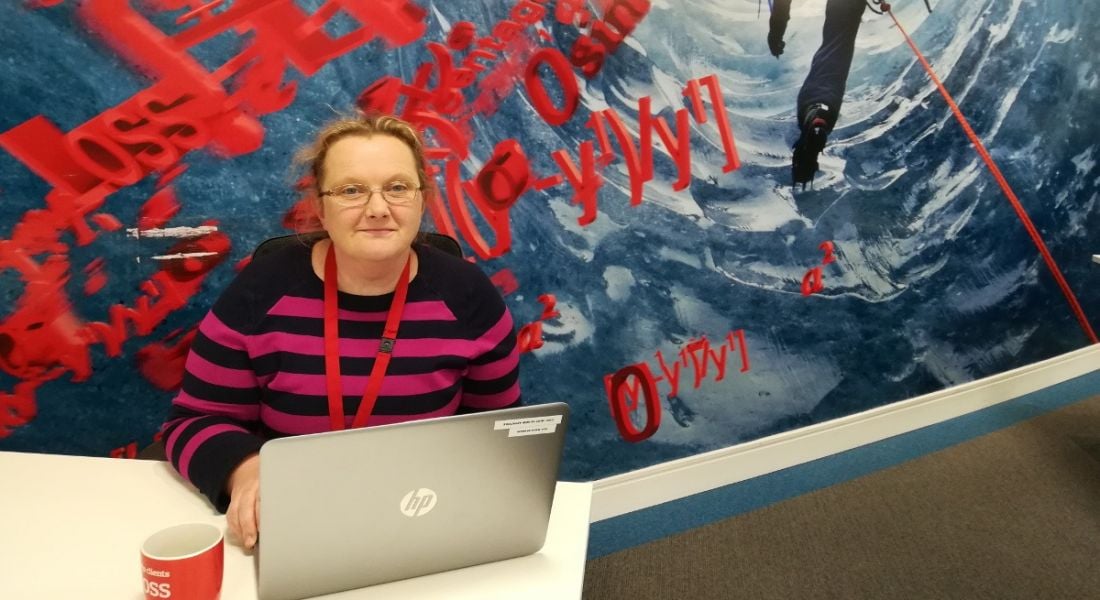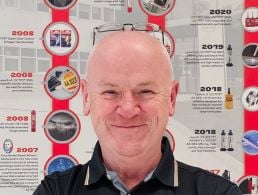Through early adventures in entering games manually in the BASIC programming language, Aon’s Maeve Branigan discovered her love of coding.
The question of how to promote diversity in the STEM space is a hot topic. People differ wildly in their approaches, but there is a general consensus that the earlier you intervene, the better. This is why many STEM diversity initiatives are geared towards children and teenagers.
For Maeve Branigan, a data engineer at the Aon Centre for Innovation and Analytics (ACIA), her introduction to the world of computer programming began at an early age when her parents bought a ZX Spectrum, an 8-bit personal computer. They didn’t, however, buy any games, so Branigan had to type them all in manually in the BASIC programming language.
To hear more about the key elements of Branigan’s journey to a career in data engineering, read on.
What drew you to data engineering?
I have always had an interest in technology and programming from an early age. My parents bought a ZX Spectrum in the mid-’80s with no games. We had to type all of our games in manually, in BASIC. This was my first taste of computer programming. My speciality is in the data space and originated in early 2000. At that time, I had a fantastic mentor who exposed me to the full life cycle of a business intelligence solution.
What’s the best thing about working in data engineering?
I really enjoy seeing the value created by the solutions I deliver. It is through this work that Aon’s customers and colleagues can rely on our products and services.
At ACIA, there is a vibrant and fresh attitude to things and there is encouragement to get involved in various projects. There are great opportunities and the ability to transfer and lend your skills. It is very satisfying.
What’s the most exciting development you’ve witnessed in your sector since you started working in it?
Looking back on the last 20 years, my most exciting development was in the early 2000s. I was involved in the development of a profile’s data mart in the telecommunications industry. This was one of the first business intelligence projects I worked on. It involved extracting huge amounts of telecommunications data – well, huge at the time! – and generating key insights for the senior management team. It quickly became evident that high-quality data was an asset to any business and could be used to drive more informative decision-making.
More recently at ACIA, I have worked on the development of the Risk/View for Carriers product. This is a critical deliverable for the ACIA. The Risk/View solution is innovative and exciting to be involved in.
What aspect of your job have you struggled to get to grips with?
Keeping abreast with new technologies and picking the right technology for myself. There are so many tools out there for data engineering and you never know when you might find them useful. Each tool holds a different value.
ACIA recognises this as a struggle for employees. The company offers a lot of opportunities such as workshops, lunch-and-learns and working groups.
What’s been the hardest thing you’ve had to face in your career, and how did you overcome it?
The hardest thing I faced in my career is the consistent evolvement of technology. I am very tech-savvy but, to help me overcome the changes in technology, I must learn about the new technology/software as it evolves.
This environment is a novelty for me. It is like a breath of fresh air as it lets me spread my wings and be conscious of how evolving technology might be in the interest of the business.
If you had the power to change anything within the STEM sector, what would that be?
Some companies still make the critical mistake of driving projects with no real alignment between IT and the company’s goals and strategic direction.
In ACIA, I feel that clear strategic direction, coupled with agility, helps projects get to market faster. It simply avoids failures. Non-alignment results in the delivery of products which are not viable, may require much rework to be worthwhile or may even fail.
Which of your personality traits makes you best suited to your job and the engineering sector?
I think passion is fundamental when working in any job. Without passion, there is no motivation and enjoyment for the job itself. I am passionate about my job and I am collaborative.
Working in ACIA is all about teamwork and communication. Everyone here is so helpful and extremely supportive of one another’s work. I am an independent thinker, which helps me to think outside the box. I try to use my own initiative when faced with a challenge, which can happen a lot as a data engineer.
Is there something in your personal life that helps you in your job?
My family plays a big role in my life and my career, as they have always encouraged me to succeed and be challenged. I feel that a supportive group or family will encourage and motivate me to be the best I can be. This has always been the backbone of my career.
How do you make connections with others in the STEM community?
There are a number of meet-ups in Dublin which I attend. It is important to connect with different people in the STEM community as they may have different perspectives than me. It is a great way of combining something I really enjoy into a social event.
Has mentorship or coaching been important in your career?
Having a supportive, patient mentor to whom you can relate is crucial throughout any career, not just in IT. The ability to share your concerns, challenges and ideas can be extremely constructive. It helps to create a positive company culture.
At ACIA, there is a strong culture of mentorship. Learning the ropes from someone who’s been there, done that, is extremely valuable to me.
What advice would you give to someone thinking about a career in your area?
My advice would be to take every day as it comes and don’t be afraid of a challenge.
Realise that some aspects of data-related work are very niche, such as data modelling and development. These must be balanced and enhanced with strong core skills and the ability to be flexible. In some cases, it will require learning a new language or skill, and quickly. There are a lot of languages which come and go, so it is more beneficial to start off with a strong understanding of the core skills and concepts.
Pick a language and concentrate on that until you have mastered it. Do not, however, be afraid to investigate new technologies and think about how they might be applied to existing solutions.




